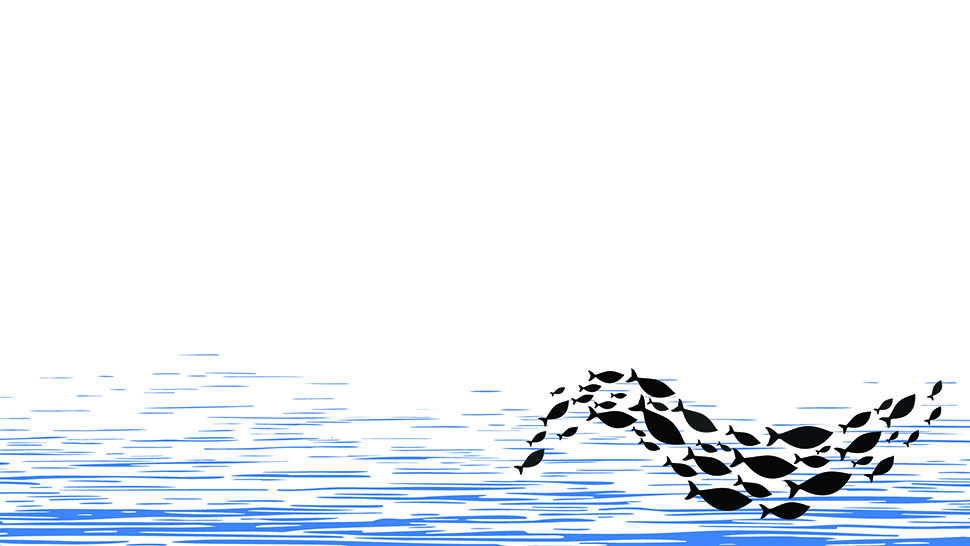
Our Chief Strategy and Brand Officer Maisie Ganzler had the pleasure of interviewing PhD student at The University of Washington and Manager of West Coast Fisheries for Ocean Conservancy Corey Ridings about her experience as a woman in the seafood industry. She explains the key issues and barriers women in the seafood industry face, highlights the work of organizations and programs aiming to change the status quo, and speaks to her own experience as an observer on an Alaskan fishing boat.
Maisie: What are the key issues women in the seafood industry face globally?
Corey: The biggest issues in the global fishing industry are inclusion and opportunity. Women don’t have as many opportunities to go fishing themselves. A lot of times the labor in the industry is distributed differently.
So, for example, when we talk about Global South countries where you’re having a lot more subsistence fishing, women are often doing a lot of the work cleaning the fish, taking the fish to market, and putting in long hours. The men who are fishing also put in long hours, but the women’s labor goes far more unrecognized and undervalued.
That is true also in the US for women’s labor associated with fishing.
Have you seen any organizations or movements or programs specifically aimed at changing these dynamics?
There are groups that work internationally looking to empower women across the seafood sector, working on things like visibility for women and more positions for women in management of fisheries. It can sometimes even be as general as just empowering all women, especially in smaller communities and in places where women have lower status in society than men.
Even in Global North countries where fishing is more industrialized, there are industry groups for women in the seafood industry. And there are even informal communities where women come together to discuss, better understand, and advocate for themselves within that.
There are a few fisheries in United States where you see a lot of direct participation of women in the catching part of the sector. For example: salmon in Alaska. You’ll see women in Alaska and women traveling to Alaska to be part of that, and they have increasing visibility. The internet and social media have provided platforms to give these women new voice and new ability to build their businesses.
You served as an observer on an Alaskan fishing boat. Were you the only woman on the boat?
Definitely. At the time in 2006, there had been only one woman who had ever served as a commercial fisherman in the groundfish fishery in Alaska.
When you entered as the only woman on the boat did you feel welcomed?
The experience for me was incredibly positive. I felt that across the board the people that I interacted with (who were 99% men) were welcoming, friendly, respectful, and actually excited to have a woman on board. A lot of these guys, especially in the groundfish Alaskan fishery — we’re talking about big boats and sophisticated fishing methods — have been living and fishing together for decades, so they appreciated having a new person on the boat to chat with and learn from and discuss. I remember one guy I fished with said having a lady on the boat means that he has to pull up his pants every day, behave himself, and watch his language. They appreciated having a sort of a change of energy on the boat by having a woman there.
While I was there, I didn’t experience any sexual harassment or harassment. But there have been reports of that in the last 15 years since I was there, and, certainly in other fisheries, harassment can be a problem. Fortunately, the numbers show it’s relatively rare. Not that it’s unimportant, though! It’s absolutely something that the National Fishery Service and the industries that carry observers need to address.
What do you call women who fish?
This is a really great question because it gets at some of the gender dynamics that can exist in the industry. Today, if you go out and you ask women who work on commercial fishing boats what they want to be called, most of them will say they want to be called “fishermen.” You would have to ask them why that is, but the answer I’ve usually heard is that it’s the word they’re comfortable with. That’s the word they grew up with, and they don’t see themselves as different from any man who’s going fishing. They’re doing the same job. They’re bringing the same quality of performance to that job, if not better, and they want to be given the same title.
Also, I suspect that “fisherman” largely has a positive connotation for many people. You think of rugged individualism; you think about life at sea; you think about hard work; you think about strength; you think about providing protein for the nation. As arguably the world’s oldest livelihood, being a fisherman is something that crosses cultures and times.
So, the word itself, at least as we talk about it in English, has a lot of positive meaning. I think anyone regardless of gender may want to identify with that. Now, of course, it is a gendered term in English. And so how any individual person interacts with that is completely up to them about how they’d like to be identified.
In academic circles, especially with more European based academic circles, the word “fisher” is used as a gender-neutral alternative to fisherman. It’s a little bit of reading the room, local preference, and respecting what every individual wants to be called.